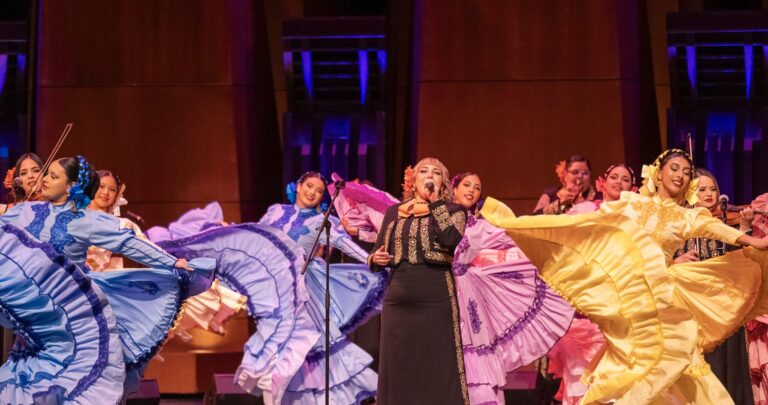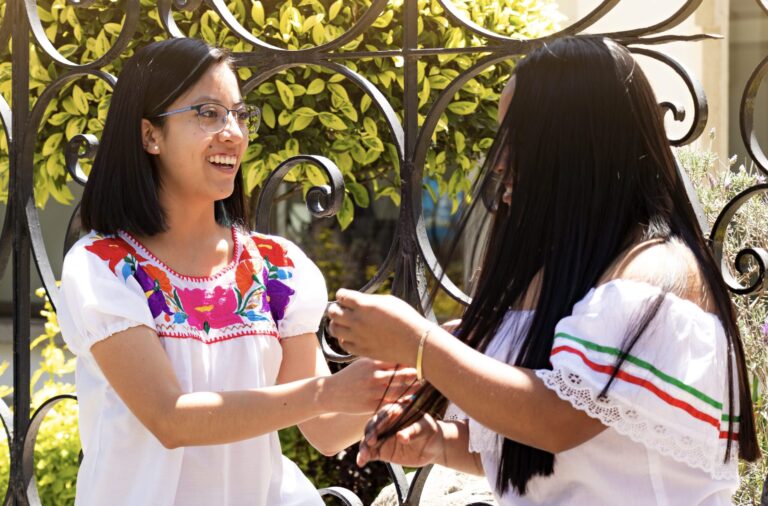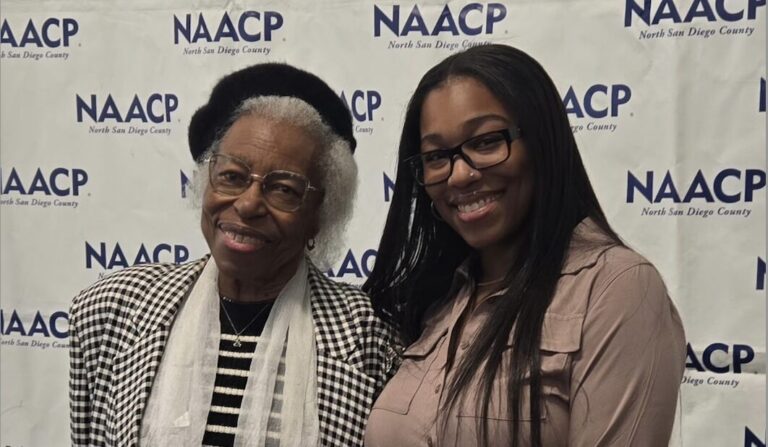By Beatriz (Bea) Palmer, Professor of Sociology and Community Educator of Cultural Humility
Navigating the world with one minoritized identity is hard; navigating with multiple identities is complex, yet at the same time, enriching. The best part is celebrating the greatness of both worlds.
February is Black History Month. Have you ever thought about how intertwined Black and Latino histories truly are? The transatlantic slave trade forcibly brought over 12 million Africans to the Americas, including present-day Mexico, Cuba, Puerto Rico, the Dominican Republic, Colombia, Venezuela, Peru, Ecuador, and Central America.
Latino communities carry ancestral roots that trace back to Africa. At the intersection we find rich flavors in our dishes, the rhythms we dance to, the cultures we’ve embraced for generations, and even the shared stories of our past.
A May 2022 Pew Research Center survey found that 12% of adult Latinos in the U.S. identify as Afro-Latino—an estimated six million people. This growing number highlights the richness and diversity within the Latino community and reinforces the need for us to learn more about our shared heritage.
Let’s start with food. Can you imagine Latino cuisine without our ‘aguas frescas’, coffee, sugar, and rice, or dishes like sancochos or ‘plantains’? Plantains, used in dishes like ‘tostones’ and ‘maduros’, came to us through Africa. And what about a refreshing ‘agua de Jamaica’, ‘horchata’, or ‘tamarindo’ on a hot day? Even our beloved ‘cafecito’ has ties to Ethiopia, the birthplace of coffee. Many Latino and Indigenous dishes are strikingly similar to African cuisine, such as tamales and the African counterparts ‘Koki Corn’ and ‘Kenkei’—both made from corn and wrapped in banana leaves. Every time we sit down to enjoy them, we’re savoring shared history.
But it’s not just the food. It’s our music and our ‘bailes’—dances that awaken our bodies to remember the origins of our heritage. Have you ever felt the heartbeat of a drum in cumbia, jazz, salsa, bomba, bachata, or merengue? These rhythms stem directly from African musical traditions. In Puerto Rico, the Bomba is a traditional dance created as an act of resistance. The rhythmic sounds of the thumping of the drums serve as a call-and-response language with the dancer, symbolizing a unique and energetic connection to African heritage.
The ‘Danza de los Diablos’, performed in Mexico and Central America, was created by enslaved African and Indigenous peoples to reclaim joy and resilience while poking fun at colonizers, reminding us of the power of movement to heal the bumps and bruises of life.
Here’s a historical ‘bombazo’: Did you know Mexico abolished slavery before the United States did? Under President Vicente Guerrero—a man of African descent—slavery was abolished in 1829. Guerrero wasn’t just Mexico’s first Black president; he was a leader who stood for justice and championed opportunities for equity. Mexico continues to raise awareness of its Black towns, known as ‘Pueblos Negros’, inhabited by Afro-Mexicanos with deep roots in Africa.
Today, we see progress in recognizing these shared roots across the many countries affected by the transatlantic slave trade. In 2015, Mexico officially acknowledged its African heritage by including “Afro-Mexicanos,” the country’s “third root,” as a racial identity on the census, addressing the ‘colorism’ and internal prejudices that have divided our communities for far too long.
Black history isn’t separate from Latino history—it’s part of our own history in the many contributions of our Black African American community woven into its tapestry of heritage. It’s a history of overcoming systemic barriers and thriving despite the odds, proving there’s far more that connects us than divides us.
Honor and Learn More about Black History
- Enroll in an ethnic studies class at your local community college to deepen your knowledge and increase your cultural humility. Learn more at https://miracosta.edu/.
- Visit the WorldBeat Cultural Center in San Diego at 2100 Park Boulevard, which hosts Black Comix VII Day on February 15. This event celebrates Black storytelling through art and comics. Learn more at https://www.worldbeatcenter.org/.
- Attend the North County African American Women’s Association Women’s Conference on Saturday, March 15, at the Westin in Carlsbad. Open to all, tickets at https://www.ncaawa.org/womensconference
- Sign up for the Interfaith Academy of Mental Health, which includes Latino and Black communities. These workshops, offered in both English and Spanish, provide valuable insight and tools to bridge gaps in mental health access. Learn more at https://interfaithservices.org/faith.
- Attend events hosted by the NSDC NAACP, one of the oldest human rights organizations in the country. Learn more at https://www.nsdcnaacp.org/.




